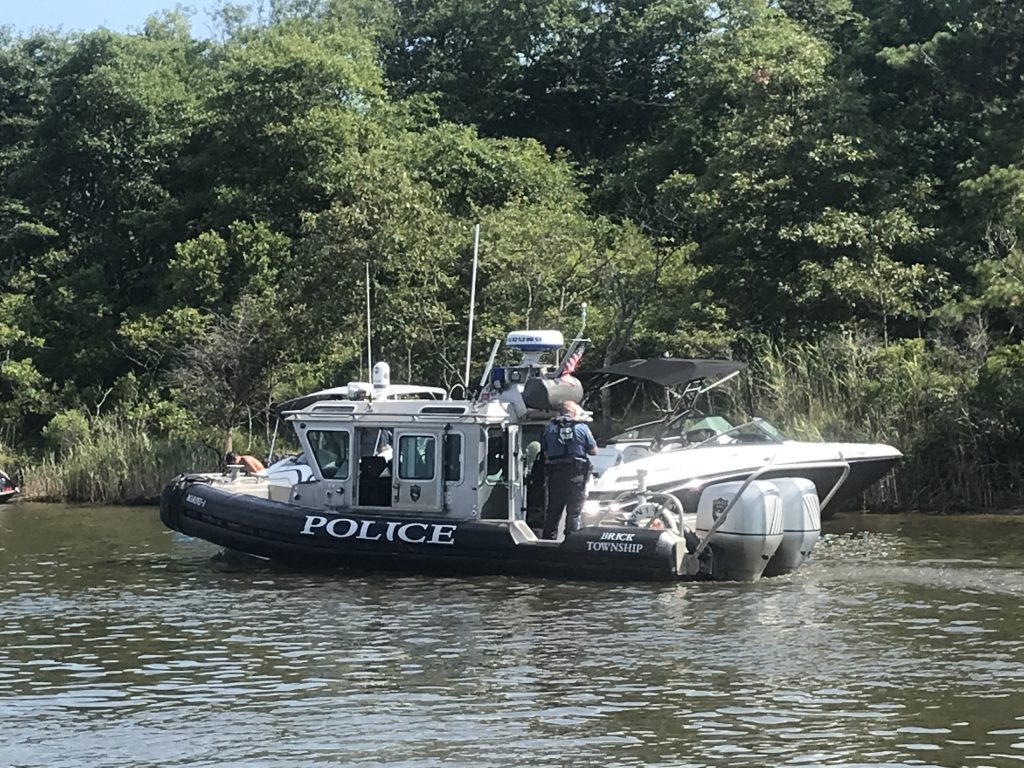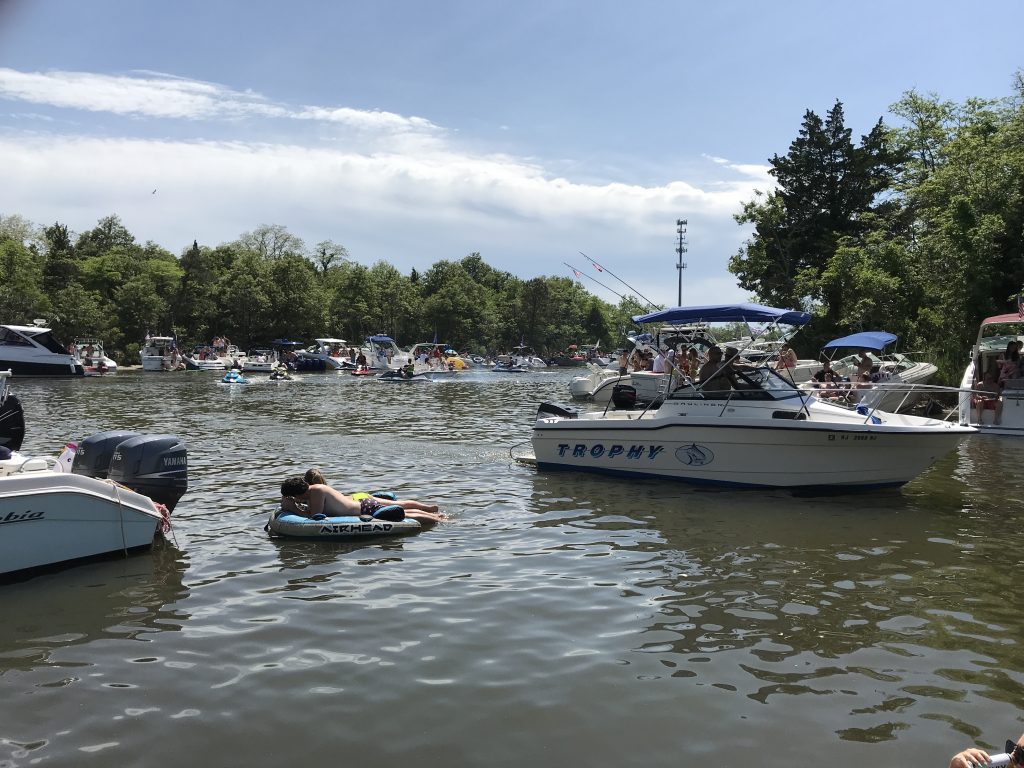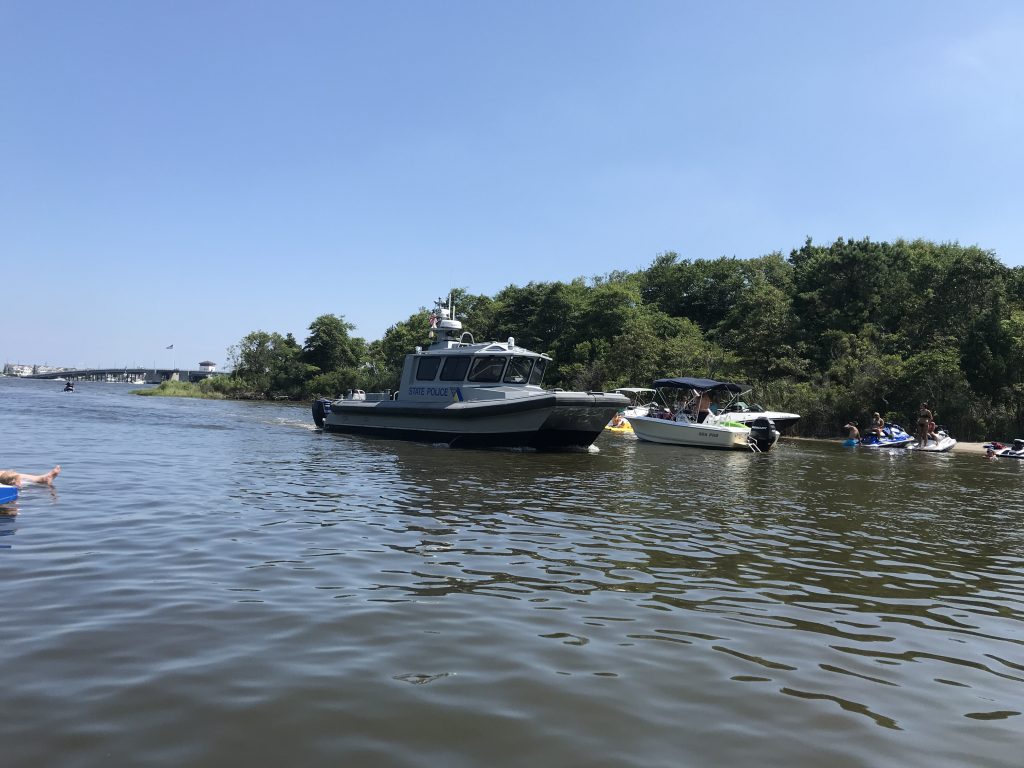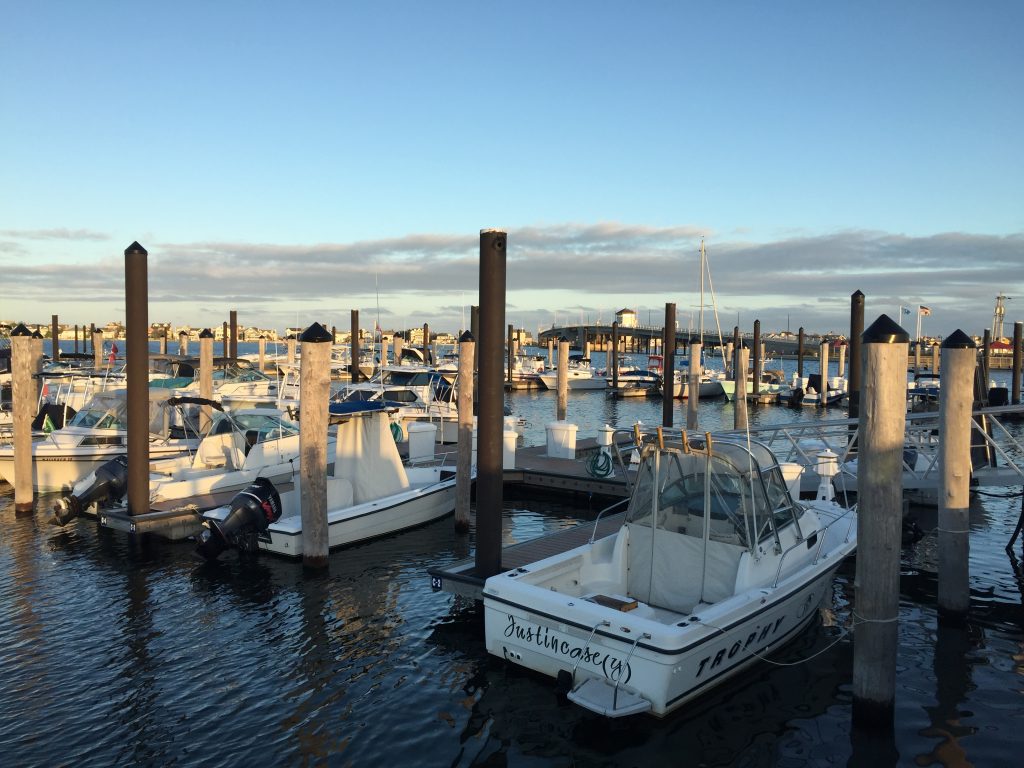F-Cove, a popular gathering place for boaters in Brick, is also an interesting study in land use jurisdiction. Now, it may become the subject of a debate on social distancing on the water as Shore residents launch their boats for the 2020 season.
“F-Cove is open at this time,” said Joanne Bergin, township administrator. “But, the area is under the ownership of Fish & Wildlife (the Department of the Interior). Ultimately, Fish & Wildlife will decide if it remains open or closed.”
The waterways, which get their name because they are dug in the shape of the letter “F,” were supposed to be part of a lagoon community. They were dug deep – about 15-feet of depth in the middle – and homes were supposed to have been built around them with quick access to Barnegat Bay. The developer, however, went bankrupt before the homes could be built, and the land was given to the township. The township later gave the land to the federal government to become part of the Edwin B. Forsythe National Wildlife Refuge.
In 2012, a new administrator of the refuge sought to close off F-Cove to boaters, leading to a raucous Brick council meeting at which she proclaimed – to the ire of a room filled with angry mariners – that “recreation for recreation’s sake” was not a permissible use of a refuge, and bollards would be placed at the entrance so boats would not be allowed in.
Behind the scenes, a few boaters hired attorneys to challenge the decision. Though refuge officials never admitted it publicly, the closure was lifted after it was determined that either the state or municipality – not the federal government – had jurisdiction over the water within the cove, according to those who worked on the issue who spoke with this reporter confidentially. While the land was dedicated to the Fish and Wildlife service, the water itself was never conveyed to any new owner. The case never made it to court since refuge management removed the bollards prior to any litigation being filed.
The waterways were opened, but signs were placed at the mean low water mark prohibiting anyone from actually entering the land of the refuge.
As of April 14, the policy of the Forsythe refuge states that: “Whenever possible, outdoor recreation sites at national wildlife refuges will remain open to the public.”
New Jersey has yet to promulgate rules for waterways except those surrounding state parks. In Florida, where the weather is warm enough to support boating, rules state that vessels may operate on state waterways but cannot raft up, must have less than 10 souls on board (regardless of the boat’s actual capacity) and remain 50-feet away from any vessels while at anchor or not otherwise under power. In popular areas near Sarasota, the Easter weekend brought out hundreds of boaters to local gathering places, but a first-hand view by a Shorebeat reporter showed the vessels were, indeed, keeping more space than usual between each other and adhering to the regulations. Further, the Board of Commissioners of Manatee County, Fla. (the equivalent of New Jersey’s freeholders), reopened its boat ramps after they had been closed by the county health agency, recognizing that fishing and boating activities can be undertaken without breaking social distancing recommendations.
In Brick, the Traders Cove boat ramp and marina remains open – but boaters must practice social distancing.
“The marina portion of Traders Cove remains open, as marina operations are allowed under the governor’s executive orders,” Bergin said. “Our boat ramps, boat slips, transient dock, canoe/kayak launch, jet ski docks, all remain open.”
“My opinion is this will continue and will only be revisited if there is a problem with people not adhering to social distancing guidelines,” Bergin added.

Advertisement

Police, Fire & Courts
Grand Jury Indicts Point Pleasant Man, Once a Fugitive, for Attempted Murder












